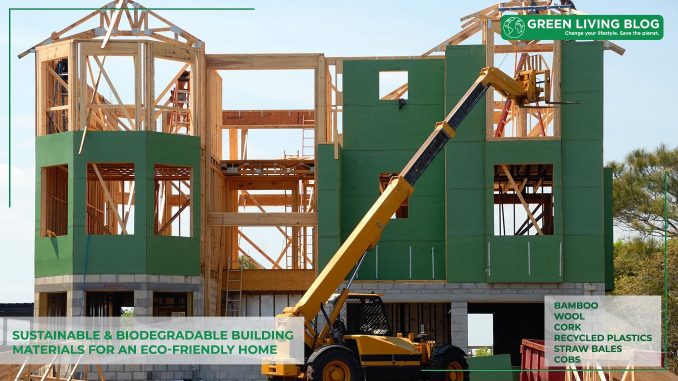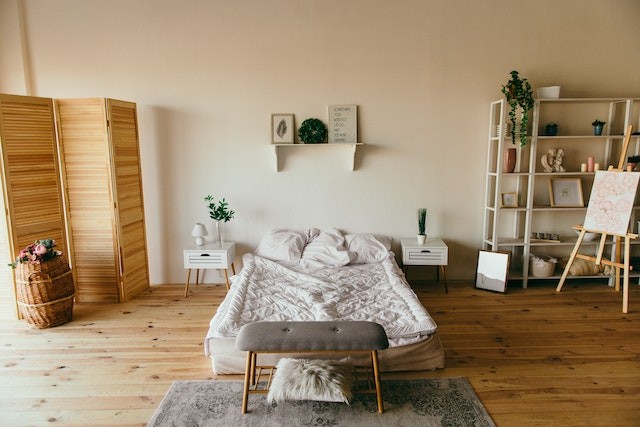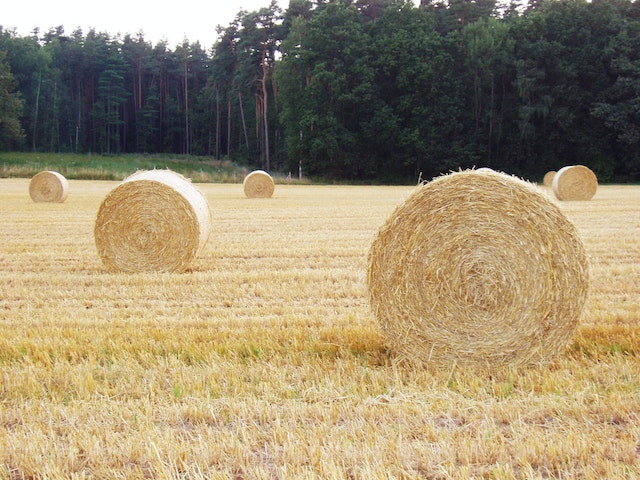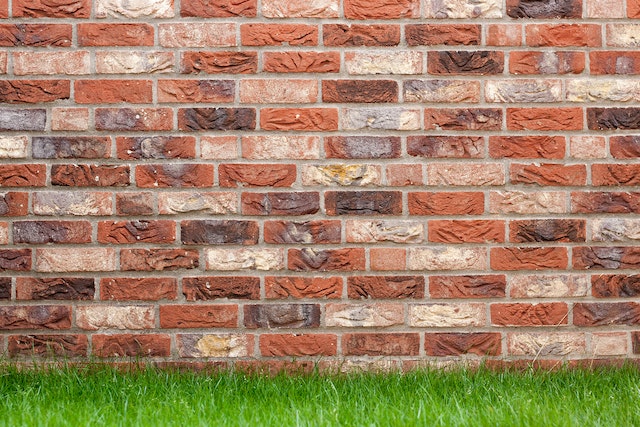
As the world becomes increasingly focused on sustainability, more and more homeowners understand the importance of having a minimal environmental impact and look for ways to make their homes more sustainable and eco-friendlier.
As a result, there has been a growing interest in sustainable construction materials.
Below are different types of sustainable building materials for an eco-friendly home.
1. Bamboo

Bamboo is one of the most popular sustainable materials on the market due to its versatility, durability, and environmental friendliness. Bamboo is ideal for flooring, furniture, and other structural applications and you can also use this material to create a variety of textiles, such as rugs and curtains.
Additionally, this material beautifies your space when installed the right way by a professional. However, working with wood materials such as bamboo may not be beginner friendly. Therefore, if you are unsure where to start with wood installation, you could visit MaterialsMarket.com for inspiration and expert advice.
2. Wool

Wool is another sustainable and biodegradable material that is an excellent choice for eco-conscious homeowners. You can use wool in creating various eco-friendly home insulation products, such as wool blankets, wool pillows, and wool carpets. Not only does this material insulate against both heat and cold, but it also helps to regulate humidity levels, making it a comfortable and healthy option for any home.
Wool is naturally antimicrobial, making it ideal for use in homes where hygiene is a concern. In addition to being a renewable resource, wool is biodegradable, meaning that it will break down over time and will not add to the growing problem of landfill waste. Wool is also fire resistant and has excellent thermal and acoustic properties, hence a safer choice for your family home.
3. Cork

Cork is also fire-resistant and insect-repellent, making it an ideal material for use in eco-friendly homes.
Cork is made from the bark of cork oak trees, which are native to the Mediterranean region. Unlike other materials such as concrete or wood, cork is a renewable resource that can be harvested without damaging the environment. During harvesting, only the bark is removed; hence the cork can be harvested repeatedly from the same tree.
In addition, cork is highly versatile, and you can use it for flooring, and it is also an excellent insulator, helping to keep homes cool in summer.
4. Recycled plastics

Recycled plastic is made from post-consumer waste and consists of bottles, plastic bags, food packaging, and other types of plastic waste. One of the benefits of using recycled plastic is that it does not require any new resources to produce, and it is extremely durable. Its durability makes it a low-maintenance option for building everything from decks and patios to fences and siding.
Recycled plastics are resistant to pests and rot, making them a good choice for areas that are susceptible to these problems. Since recycled plastics can be made in nearly any color or style, recycled plastics offer homeowners a wide range of design options. Moreover, recycled plastic is often lighter than conventional building materials, making it easier to transport and install.
5. Straw Bales

Straw is an annual crop that is renewable, meaning it can be grown again and again without depleting the earth’s resources. Straw bales have excellent insulating properties, which will help you reduce your energy consumption and keep your home cool in the summer and warm in the winter. This insulation property will help reduce your energy costs in the long run.
Straw bales are also fire-resistant and structurally sound, making them a safe and durable option for your home. Best of all, straw bales are an affordable building material, and they are easy to find. You can even grow your own straw if you have the space to save up on money meant to buy construction materials.
6. Cobs

The structural framework of a building is important; it must be made of materials that are sturdy, eco-friendly, and affordable. When considering these three factors, cobs fall into the perfect category. Cobs are one of the oldest forms of natural building still used today and are made from a mix of clay, sand, straw, and water. Once dry, they are incredibly sturdy and can be used to create walls, floors, and even furniture.
One of the great things about cobs is that they are highly insulating, so your home will stay warm in the winter and cool in the summer. Since this construction material is made from natural materials, cobs are completely biodegradable. Therefore, when you are ready to move on from your cob home, simply return the materials to the earth. If you are looking for eco-friendly building materials for your home, cobs and the above options are a good starting place on your journey to building an eco-friendly home.
With the current state of the environment, it is more important than ever to do your part to reduce your impact on the planet. You can start doing this by choosing some of these sustainable construction materials for your homes to achieve net zero as a homeowner.
![]()
Author Profile

- Eco Warrior by day, Eco Blogger by night trying to get the eco balance right.
Latest entries
 Green Home GuidesApril 17, 2025How Heat Pumps Help Cut Household Carbon Emissions
Green Home GuidesApril 17, 2025How Heat Pumps Help Cut Household Carbon Emissions EnvironmentApril 17, 20256 Benefits of Wall Cladding for Eco-Friendly Renovations
EnvironmentApril 17, 20256 Benefits of Wall Cladding for Eco-Friendly Renovations EnvironmentMarch 31, 20255 Sustainable Materials for Building Your Dream Eco-Friendly Pergola
EnvironmentMarch 31, 20255 Sustainable Materials for Building Your Dream Eco-Friendly Pergola Best practicesMarch 25, 202510 Green Tips to Live a More Sustainable Lifestyle
Best practicesMarch 25, 202510 Green Tips to Live a More Sustainable Lifestyle





Leave a Reply
You must be logged in to post a comment.